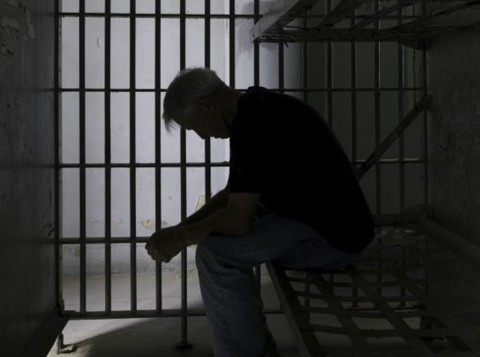Would I be ready for this?
What do the following people have in common:
Timothy, Symphorosa, Germanicus, Blandina, Ponticus, Felicitas, Perpetua, Cecilia, Julian, Denisa, Alexander, Epimachus, and Agatha?
Any ideas? Are these names ringing a bell, somewhere from the deep recesses of your mind?
Every single one of these listed above (and thousands and thousands more) were martyred under the Roman government at one time or another. Here’s a quick rundown of how they entered heaven:
Timothy – reproved the idolatry of the people and was beaten with clubs so badly that he died from the bruises within 2 days.
Symphorosa – refused to sacrifice to heathen deities, along with her seven sons. She was scourged and then hung up by the hair of her head; after a time a large stone was thrown around her neck and she was thrown in the river. All seven sons were fastened to seven posts with pullies and torn asunder, all their limbs dislocated; they were all eventually stabbed, except for the youngest who was sawed in half.
Germanicus – a young man, delivered to the wild beasts; he handled his death with such astonishing courage, several pagans were converted.
Blandina – Attached to a pole on the ground and exposed to the wild beasts for food; during this time her earnest prayers encouraged others; The wild beasts wouldn’t touch her. She was sent back to prison and forced to endure all kinds of torture, and then was eventually slain.
Ponticus – A 15 year old boy, who was in prison with Blandina and partook of the same sufferings and torture, eventually dying by the sword, as well.
Felicitas – A very pregnant young woman who, along with another lady named Perpetua, were forced to run between hunters of wild beasts and they were severely lashed; they were then stripped and thrown to a wild bull, where they were gored dreadfully, and then finally perished by the sword.
Cecilia – a young lady of good family, who converted her husband and brother, who were beheaded, and also the officer who led them to their execution, who was also beheaded; she was forced naked into a scalding bath for a considerable time; eventually she was beheaded with a sword.
Julian – He was put into a bag with serpents and scorpions and thrown into the sea.
Denisa – a 16 year old girl who was beheaded for her faith.
Alexander & Epimachus – beat with staves (plural of staffs), torn with hooks, and, at length, burned with fire.
Agatha – a godly and very beautiful Sicilian woman who caught the eye of the Sicilian governor. When put into a position to compromise her faith, she refused, and therefore she was “scourged, burnt with red hot irons, and torn with sharp hooks. Having borne these torments with admirable fortitude, she was next laid naked upon live coals, intermingled with glass, and then being carried back to prison, she there expired on the 5th of Feb, 251.”
____________________________________________
Perhaps I should have not written so many of these stories. I couldn’t decide which ones to use and which ones not to. There are dozens more and I am only a few pages in the book Foxe’s Book of Martyrs.
Here’s the thing — these were all REAL people. So, yes, they lived a long time ago but that doesn’t make them any less real. A 15 year old boy, a 16 year old girl, a pregnant woman, wealthy people, poor slaves, bishops, and beautiful women. All perished at the hands of evil men and women, whom Satan used in his efforts to douse the light of Christianity.
But it didn’t work! Here’s what it says regarding one of the persecutions: “but though the persecuting malice raged, yet the gospel shone with resplendent brightness; and, firm as an impregnable rock, withstood the attacks of its boisterous enemies with success.”
Fast forward 2000 years. Most of us have no clue what it means to suffer for Christ. Many of us wonder if we would choose to do so, if it really came to that.
I can’t help wondering if it will. Soon. Each year brings more and more persecution to those who stand firm on biblical Christianity. The persecution is nothing like those our persecuted brothers and sisters faced all those years ago, or even what many of our Christian brothers and sisters face in foreign lands. But if it comes, will we be ready?
I think it comes down to this: If you are a true believer in Jesus Christ, Christianity isn’t a religion, it is your whole life. There is no part that remains untouched by God’s grace and the Holy Spirit’s conviction. We know that we are condemned to hell without Jesus’s death and resurrection and we won’t trade anything — not worldly reputation, material wealth, nor our very life– for it.
As I write this, I feel very weak as I read the sufferings of those mentioned above. I imagine my body being torn by hooks or burnt by scalding water or hot coals and I shudder and cringe. Lord, am I strong enough to withstand that?
But it’s not my strength that will see me through that day, should it come. It’s HIS.
The men and women who have died and continue to die for their faith in Jesus Christ do not do so on their own strength. They can’t sing and pray while being tortured on their human strength. Only God can supernaturally supply that strength. We are so far from needing that kind of strength in our own lives that it is a completely foreign thought to us.
Is it coming? I don’t know. I tend to think it is. We’d like to think that man could never become so evil again, but if we read recent history –of Hitler and Stalin and Pol Pot– or we follow current events–Sudan, Eritrea, and Iran, for example–we can see that men are still coming up with horrible ways to torture their fellow man.
Will I be strong enough to stand if that day comes to America? Only if I rest in God and draw on the strength that He will supply only to those who are truly His.
Find Foxe’s Book of Martyrs here.



